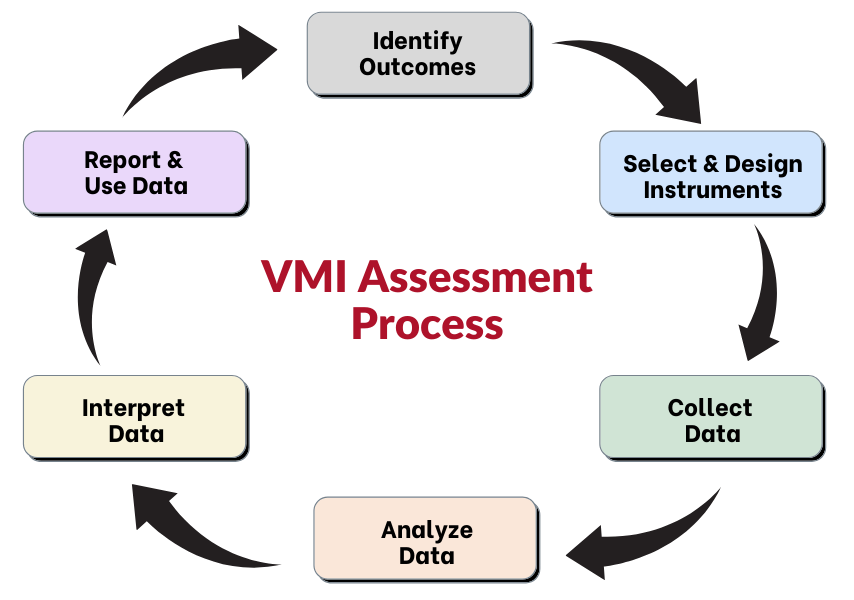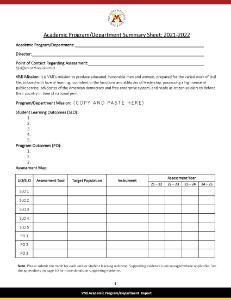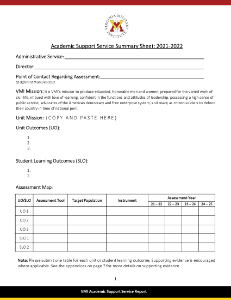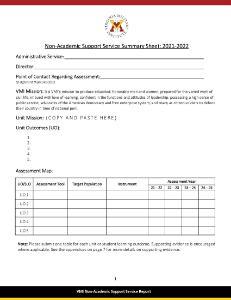Assessment
Virginia Military institute (VMI) understands the value of assessment to the curricular and co-curricular programs, activities, and services at the Institute. We engage in an ongoing, systematic effort to assess all aspects of the VMI experience to measure program and learning outcomes, determine if those outcomes are being met, and make informed decisions to continually improve this experience and achieve the Institute’s goals. Our commitment to assessment demonstrates our accountability to the educational environment we create for our community. Our office collaborates with the departments, programs, and services at the Institute and assists them with all aspects of the assessment process guided by our office’s Mission and Objectives.
Assessment Process
How well is Virginia Military Institute accomplishing its mission? Answering this question is accomplished through cyclic assessment activities at all levels of the Institute’s operations, with particular emphasis given to educational programs, administrative support units, and academic and student support services. By measuring the extent to which identified outcomes in each of these three areas (and units within these areas) are achieved, we are able to make inferences about overall institutional effectiveness. This information is then used to determine if changes are needed in operations (i.e., curriculum, pedagogy, or services offered). Once the changes are implemented, we again assess their effectiveness, and so on.

- Identify Outcomes: Each program identifies what they want cadets, faculty, or staff to know or be able to do from their participation in the program’s activities. Also, targets are established to identify what criteria determine that the outcome has been met.
- Select and Design Instruments: Create or use validated quantitative and/or qualitative methods and tools to collect data associated with each outcome.
- Collect Data: Using the tools, collect data before, during, and/or after the program, which is dependent on the targets set and methods chosen for each outcome.
- Analyze Data: Analyze the collected data using descriptive and inferential statistical techniques and qualitative analysis.
- Interpret Data: Draw conclusions and understanding from the data to determine if the SLOs were met based on the targets established.
- Report & Use Data: Report the results to stakeholders and use these results and data to inform decisions regarding continuous improvement to the programs, services, and/or outcomes.
Core Curriculum
The core curriculum focuses on a broad set of knowledge and skills that aligns with VMI’s mission. Assessment is a vital component of this curriculum as it ensures we are meeting our intended outcomes.
GO 77: Assessment Policies and Procedures for All Programs and Services
VMI-specific policies and procedures are outlined and guided by GO 77.
Assessment Reports
Each year, departments, programs, and services are required to submit an annual assessment report. These reports provide details about each area’s outcomes. The table below provides a report template and completed sample report. All data in the sample reports are made up and do not represent any program or service.
Report Template Previews:
| Academic Program Report Preview | Academic Support Service Report Preview | Administrative Support Programs & Services Report Preview |
|---|---|---|
 |
 |
 |
VMI Faculty and Staff may download blank, editable versions of these templates. [Current VMI credentials required]
.svg)
.png)